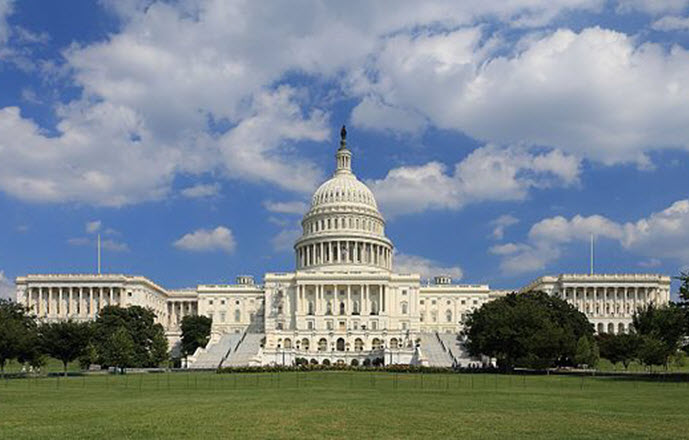By Ed Perkins, Tribune Content Agency
“FAA will regulate seat size,” was the tenor of much early reporting on the new FAA Reauthorization bill, as agreed by both houses of Congress. And that’s simply not true. The bill just says that the FAA should study whether minimum standards of seat width and legroom are required for safety. Safety, not comfort; the FAA isn’t concerned about comfort. And my take is that after doing whatever “study” it decides to do, the FAA will simply conclude that today’s tightest standards are perfectly safe and go on about its other business. Folks who think the bill guarantees more room for travelers in coach/economy are delusional.
Overall, the final bill is a mixed bag for consumers, with a bunch of minor improvements but failing to address fees, one of the top priorities among many consumer advocate. Overall, probably the biggest gain for consumers is that the final bill drops two very bad proposals that were in earlier drafts.
No Action on Fees. The final bill drops earlier proposals that the Department of Transportation require airline fees charged to travelers to be “reasonable” and related to the cost of the service provided. Although some of my fellow consumer advocates strongly supported this language, I didn’t fully agree. Perversely, fees and restrictions on the cheapest tickets benefit consumers, because they deliberately make those cheap tickets unattractive to business travelers. Lose the restrictions, and airlines would have to raise the prices of their cheapest tickets. And that would most certainly be bad for consumers.
The main pain point for consumers is the fee airlines charge to apply part of the cash value of a cancelled nonrefundable ticket toward the cost of a future ticket. Originally, when airlines first issued nonrefundable tickets, they were truly nonrefundable: Use it or lose it, with an exception for verified medical problems, and no selling or giving it to anyone else. But the growth of desktop publishing (desktop forgery, in this case) made verifying “doctor’s letters” impossible. Instead, airlines said that holders couldn’t get any money back but they could use the cost of a cancelled ticket toward the price of a future ticket, less a fee. Most lines originally set that fee at a reasonable $25. But now, on most big lines it’s typically $200 for a domestic ticket and up to $700 on an international ticket. And that’s where the pain sets in: While the other fees and restrictions are at worst nuisance values that affect everybody, outlandish ticket change fees are different: They hit only a few travelers, but hit them very hard.
Airlines are tone-deaf when it comes to consumer pain points: All too often, they ignore them, then, when exasperated consumers turn to the government for relief, the lines whine about “reregulation.” Airlines avoided regulation this round. But if they don’t solve this problem, demands for regulation will come up again.
One interesting sidelight to the fee situation. Although deregulation freed airlines from fee regulation on domestic flights, current legislation still gives DOT authority to regulate fees on international tickets. Many consumer advocates consider it shameful that the DOT has abdicated this responsibility, and some have gone to court to force it to do its job.
Bad Ideas Dropped. Two very bad ideas in original versions of the bill got dropped:
— A provision that would overturn DOT’s current requirement for all-up inclusive price advertising on airfare, a big benefit for consumers trying to find their best deals.
— A provision that would make it very difficult for online travel agencies (OTA) like Booking.com and Expedia and metasearch systems such as Kayak, Mobissimo and TripAdvisor to display and compare airfares from different airlines. Although remnants of this provision remain, they’re watered down enough that the OTAs and metasearch folks should be able to live with them.
FAA Funding. Yes, the bill accomplishes its biggest goal: funding the FAA through 2023, freeing it from yearly cliffhanger budget worries. And that’s a very good idea.
(Send e-mail to Ed Perkins at eperkins@mind.net. Also, check out Ed’s rail travel website at Rail-Guru.com.)
(c) 2018 TRIBUNE CONTENT AGENCY, LLC.– October 2, 2018


Leave a Reply